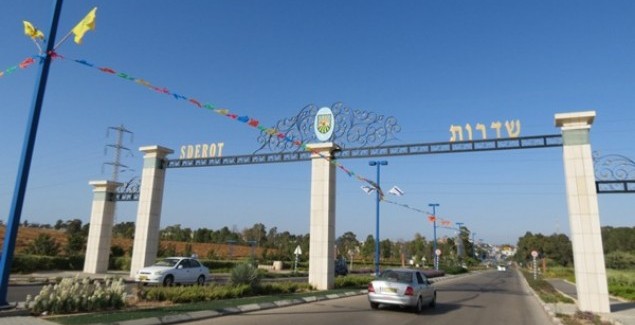Fear of the ‘Other’: Clarity While Under Attack
Over a four-day period this March, sirens periodically sounded to warn residents of Be’er Sheva, one of Israel’s largest cities near Gaza, to take shelter from missile attacks.
On the first day when the siren sounded, my son was not home. Panicking, I called his cell phone. There was no answer. I began to pray to Allah and meditate to calm myself and overcome an overwhelming fear for my son’s safety. I went into our reinforced safe room but couldn’t bring myself to close the door without my son inside.
Moments later, he burst into the house, followed by two Jewish friends. I rushed the boys into the safe room and shut the iron door behind them, speaking to my son in Arabic, our native language. I told the boys, in Hebrew, to call home and reassure their mothers that they were safe. I covered our dog with a blanket. It was enough that the Jewish boys were frightened. At least I could make sure they didn’t get bitten.
When one of the boys refused to call home, my identity as a mother faded into the background so that our national identities could be addressed. One of the boys, Yossi, had never met me before. There was something in his stillness that reminded me that it could be frightening for him to be with Arabs, even from his own community, during an attack. I considered the idea that he may have chosen not to phone home because he didn’t want his mother to know he was with Palestinians.
My thoughts and sympathies stayed with the Jewish mother who did not know where her son was. I could feel that mother’s anxiety, which had been mine only moments before. I insisted the boy text his mother to say he was safe in a shelter. That way, he would be filtering out the difficult information.
I put myself in this teenage boy’s shoes, sitting in a strange room with a Palestinian family while being bombed by Palestinians. I was overwhelmed with the boy’s fear of being trapped in a room full of the “enemy”. Even though it was unnatural for me to speak Hebrew with my family, to put the boy more at ease, I forced myself to do so.
The next day, the school that my son and his friends attend was closed in anticipation of further missile attacks. Though our family is Muslim, we chose to send our son to a Jewish school close to our house. When I returned from work, my son was not at home. Searching for him, I called the mother of the other Jewish boy I had sheltered, whom I knew better, and was told that the boys had all been taken to a local swimming pool. I offered to go pick the boys up and bring them home, and was given the address of the war veterans’ club where the father of one of the boys was a member. I froze, finding it offensive that the Jewish mother could be so insensitive. I didn’t want my son at a military establishment, out of solidarity with the innocent Palestinians suffering retaliation across the border in Gaza. Then I asked myself, “What is the dilemma? When the mothers took him to that swimming pool, they were not thinking of us as Arabs. We are people looking after each other’s children.”
Both Yossi and I needed to rationalise away the fear of the other’s space, and what it meant about our identities to inhabit it. This complex zooming in and out of focus from background to foreground, from person to group and back again, is crucial to maintaining real relationships. For Yossi, it was hard to differentiate the people who are threatening him from the people protecting him. For myself, it was as natural to protect Yossi as it was to protect my own son.
I empathise with the fear of both Israeli children and the children of Gaza, and with parents’ desperation to keep one’s family safe on both sides of the border. When one’s identity precludes a clear “us” vs. “them”, what becomes clear is the tragedy of this destructive pattern. Only when we recognise that no one wins from terrifying the other will we understand that triumph in battle is not a solution – and that both sides can be winners if we all choose to let each other live in freedom, and with dignity.
Rema Kheriya Irshed is a Palestinian Israeli psychotherapist and group facilitator trainer. This article was written with Ariel Katz, who studied Middle Eastern Studies at Cornell University and now works as a play therapist.




You must be logged in to post a comment Login